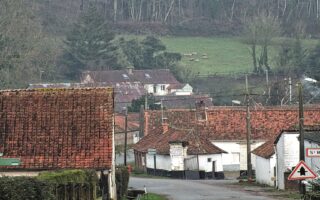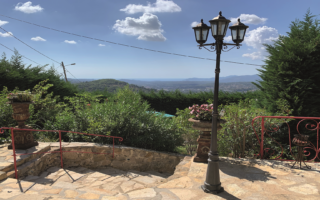French Eco Grants
Financial aid is available for certain home improvement projects, says Mary Hall, but find out what qualifies before you start work…
The availability of grants, especially for green’ aspects of renovation projects, is a topic which pops up frequently in the various online forums, and in my mailbox. So, what finance is available, and where can you get it from?There are a number of financial incentives designed to encourage energyefficient renovations, and it is possible to take advantage of more than one on the same job. However, the terms and qualifying conditions of the offers vary, and you need to read all the details before you start a job if you wish to make the most of them. Another point to bear in mind is that, as in the UK, the amount of aid available and the type of project covered varies from year to year, and sometimes from region to region.Most of the money available is currently for the renovation of existing residential properties; barn conversions and the like do not qualify. More help is available for work on principal residences than for second homes. Much of the help available is given in the form of a cr�dit d’imp�t (tax credit) to set against your liability to French income tax, instead of grants (subventions) so, if you are not fiscally resident in France, there are fewer options open to you.As a general rule the work has to be carried out by French-registered tradesmen, and money is only issued on presentation of factures (bills) for completed work. You cannot get help for a DIY project, nor can you obtain money up front. Thus work goes to local businesses, and can’t be done on the black’. Presentation of invoices also ensures grants don’t go to fictitious projects.The most well advertised aid is the cr�dit d’imp�t d�veloppement durable, designed to help energy-efficiency improvements to private homes (excluding second homes). Part of the cost of the project can be set against your liability to income tax in the next financial year. Both owner-occupiers and certain landlords can benefit.Projects covered by the scheme include woodburning stoves, thermal insulation, heat pumps, wind turbines and condensing boilers. There is a maximum spend’ of €8,000 for a single person and €16,000 for a couple (any extra costs won’t be given any financial help), and the rate at which help is given varies from 25-50% of the project cost.The terms and conditions are complicated and detailed, for example, insulation work has to meet specific performance standards and woodburning stoves have to produce low levels of carbon monoxide and specific heat production targets. DIY projects don’t qualify.When you conclude a qualifying project, you simply keep the facture and have it to hand when you fill in your next income tax return, completing the appropriate line. When you get your avis d’imp�t, your tax credit will appear, as if by magic.This is fine, I can hear you saying, but is there any help up front? Yes, the eco-pr�t � taux z�ro can help you fund environmentally friendly improvements via loans at 0% interest – available to owner-occupiers (including SCIs) and landlords for principal private residences built before 1990.You can benefit from both an eco-pr�t and a cr�dit d’imp�t d�veloppement durable if you get your loan offer before 31 December 2010, and if your household revenue (revenu fiscal du foyer) doesn’t exceed €45,000. One loan only per dwelling. The loan comes from one of the many participating banks, not from the government. Again, DIY work doesn’t qualify, but the loan can cover the work and associated professional fees.The terms are complicated. There are two ways of going about the project, the first is for a bouquet’ of works from at least two of the six categories, which can include, for example, improved insulation, new windows and a heat pump. The second option is for the overall improvement of the global energy performance of your dwelling to achieve certain specified performance thresholds. These thresholds vary according to where you live as set out in specified climatic zones. Phew! You can also use these loans to improve your foul drainage system if you are not on mains drainage: very useful to know, if your system is outdated.If you think these eco-pr�ts would help you, your first step is to make contact with your local espace info-energie, a network of specialised local advisory offices. You can find the addresses at www.ademe.fr/ particuliers/PIE/InfoEnergie.html. Their advice is free so make the most of it! Then you can get the quotes (devis) from local tradesmen, and download the required standard application forms from http://ecocitoyens. ademe.fr/financer-mon-projet/renovation/eco-preta- taux-zero.You’ll need the help of a professional advisor, so be nice to those kind bods at your espace info-energie. If you are going for a new foul drainage system, you’ll need your local drainage inspector to specify the type of system they approve of, and to tick the boxes on the application form. You should have their address from your last formal inspection, if not ask at your mairie.Other financial help for those on low incomes is awarded by ANAH (Agence National de l’Habitat). The income threshold vares according to where you live Full information is available at www.anah.fr.All of the help described above can be combined with the reduced rate of 5.5% TVA (VAT) on qualifying renovation works. Second-homeowners and even non-residents can benefit from this – so long as the work is carried out by French-registered tradesmen.To sum up, money is available to help with environmentally friendly aspects of renovation works, but to make the most of it you need to do your homework before you start. Spend time looking at the information available on line, especially at www.ademe.fr under ecocitoyens’. There is a wealth of info available under sites such as www.rtbatiment. fr. If you don’t speak much French, you might find it an uphill struggle – but on the way your language skills will improve as the possibility of getting euros from the French government hoves into view! Story by,Mary Hall is a chartered surveyor who lives in south-west France.
Share to: Facebook Twitter LinkedIn Email


